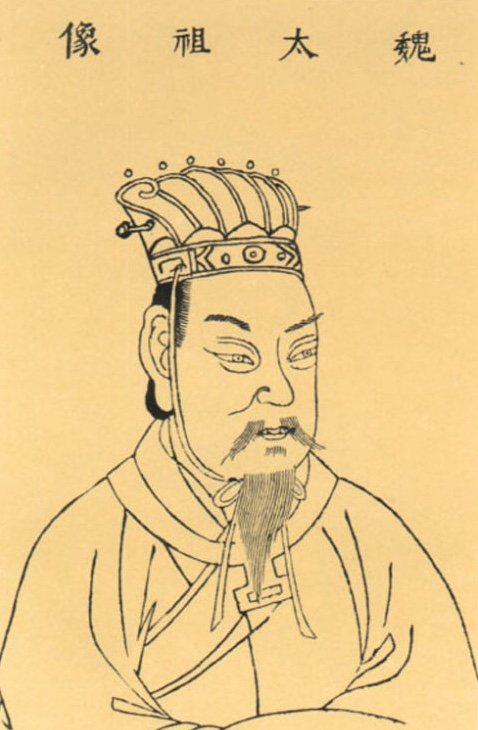“"I'd rather betray others, than have others betray me."”
Statement in 190, after falsely killing Lü Boshe. Source: Sun Sheng Zaji, page 5 of Sanguo Zhi.
Cao Cao fue el último primer ministro de la dinastía Han de la antigua China. Como figura central del Período de los Tres Reinos, estableció los cimientos de lo que llegaría a ser el reino de Wei y fue póstumamente nombrado Emperador Wu de Wei .
Aunque en la cultura popular y en el Romance de los Tres Reinos se le retrata como un personaje cruel y sospechoso, el Cao Cao histórico brilló como gobernante, como estratega y como poeta. Entre los chinos la figura de Cao Cao es de gran importancia aún hoy en día. Por ejemplo, el dicho "hablando del rey de Roma, por la puerta asoma", que en castellano se dice cuando aparece de repente alguien a quien se acaba de mencionar, tiene en chino el equivalente "hablando de Cao Cao, llega Cao Cao" [cita requerida].
Wikipedia

“"I'd rather betray others, than have others betray me."”
Statement in 190, after falsely killing Lü Boshe. Source: Sun Sheng Zaji, page 5 of Sanguo Zhi.
Statement to Chen Gong after falsely killing Lü Boshe and his household. Source: Romance of the Three Kingdoms. An adaptation of the Sanguo Zhi new 2010.
likely intentional misquote by the novel of the quote「宁我负人,毋人负我」above to add character to the story.
Attributed
Statement by Cao Cao around 191 during a discussion with Yuan Shao. The two compare their long term strategies, with Cao giving an abstract approach. The conversation is generaly considered to be fictional, and recorded only for allegorical effect. Source: Sanguo Zhi, page 26.
Statement from Cao Cao to his advisors before he face Yuan Shao in the Battle of Guandu Source: Romance of the Three Kingdoms. An adaptation of the Sanguo Zhi new 2010.
Attributed
“"Recognise and acknowledge your mistake, but never admit your mistake."”
Statement to one of his advisors when he realised that Cao Cao made a mistake. Source: Romance of the Three Kingdoms. An adaptation of the Sanguo Zhi new 2010.
Attributed
“"Each man is for his lord, do not give chase."”
Statement to his retainers in 200, referring to the recently left Guan Yu. Source: page 940 of Sanguo Zhi.